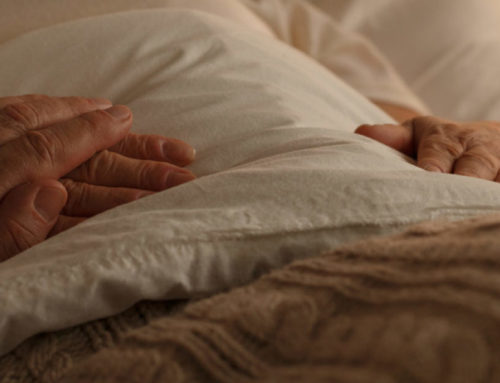Caregiving is an often taxing duty, and dementia care is no exception. Family caregivers, notably those caring for loved ones with Alzheimer’s and dementia, report extremely high levels of stress. As much as so many of us want to provide hands on care for our loved ones, caring for a dementia patient is something no one can do alone. In order to face the challenges of dementia caregiving, it is important to seek support–both emotionally and physically.
What Does Dementia Care Entail?

For those with a family member whose dementia has not progressed to a severe stage, you might wonder what caregiving needs will exist for them in the future. Those with various forms of dementia need special care that differs from other forms of elderly care. This can become more apparent in later stages of Alzheimer’s and other forms of dementia.
Dementia care requires a caregiver’s attention to the effects of memory loss. Because dementia affects people both physically and cognitively, dementia patients require care that serves both their bodily needs and cognitive issues brought on by memory loss. Potential physical needs of moderate to severe dementia patients include:
- Help with mobility (walking, fall prevention, etc.)
- Help with bathing and general hygiene
- Assistance using the bathroom
- Doing household chores and preparing meals
The other implications of dementia care deal with the mental effects of Dementia. Alzheimer’s and dementia patients often experience confusion, disorientation, and mood swings that can cause anger, frustration, and sadness. These effects can change and present themselves differently over time as one’s dementia progresses. Because the nature of memory loss is unpredictable, caregivers need to be able to de-escalate and cope with these challenges.
Coping with Caregiver Stress

The demands of dementia care understandably lead to stress, even for family caregivers who want nothing but the best for their loved one. While caregiving can be a gratifying task, coping with the physical and mental demands of dementia caregiving can be taxing. Combined with the painful experience of witnessing a loved one struggle with dementia, a caregiver’s duties often compound unrecognized stress.
Many caregivers fail to address their stress. A common cause of this issue is that many caregivers feel guilty admitting the difficulty of caring for their loved one. This is an understandable challenge, addressing stress is nothing to be ashamed of. Ultimately, when caregivers take time for their own wellbeing, it can lead to happier and healthier circumstances for everyone involved.
Recognizing your own stress as a caregiver, or reaching out to a caregiver you know that might need support, can make a world of difference when it comes to dementia caregiving. Freeing up time in a caregiver’s busy schedule is one of the best ways to cope with stress. Taking a break to rest, relax, and pursue your own interests, pastimes, and social life can prevent future exhaustion and even depression. Many caregivers additionally benefit from support groups, a good opportunity to share experiences with other caregivers.
Finding Help

While freeing up personal time is possibly the best way to ease the stress of dementia caregiving, this proves nearly impossible for some caregivers. For many families, caregiving is an around the clock job, one without the luxury of breaks. However, no one has to attempt the task of Alzheimer’s and dementia caregiving alone. It is important to remember that there is no shame in reaching out for help. Often, the simple yet often difficult first step of asking those around you for help can be extremely fruitful.
On top of utilizing support groups, assistance with care can make a huge impact on the challenges of dementia caregiving. Utilizing professional care services is a great option for many families. Many dementia patients will reach a stage in which professional care is necessary. Accepting this reality can take a great burden off of family caregivers. Additionally, professional dementia care can bring a greater quality of life to your loved one. Professional dementia caregivers are specially trained to respond to the effects of memory loss, making patients more comfortable in their surroundings.
New Wave Home Care’s Dementia Support Services
New Wave Home Care offers expert in-home care services for those in need in the Pasadena area, including those with Alzheimer’s and other forms of dementia. Our dementia care services offer compassionate caregiving with professional expertise, and anything from around the clock care to respite care providing breaks for family caregivers. With New Wave Home Care’s dementia care, you can expect expertise, support, energy, and comprehensive in-home help.
For more information about navigating the challenges of dementia, feel free to visit our blog for more insights. For guidance with dementia care or any other types of care, do not hesitate to contact us at any time. We are always available to answer questions when you book a free consultation. For any of your elderly care needs, New Wave is here to offer our support and guidance.



